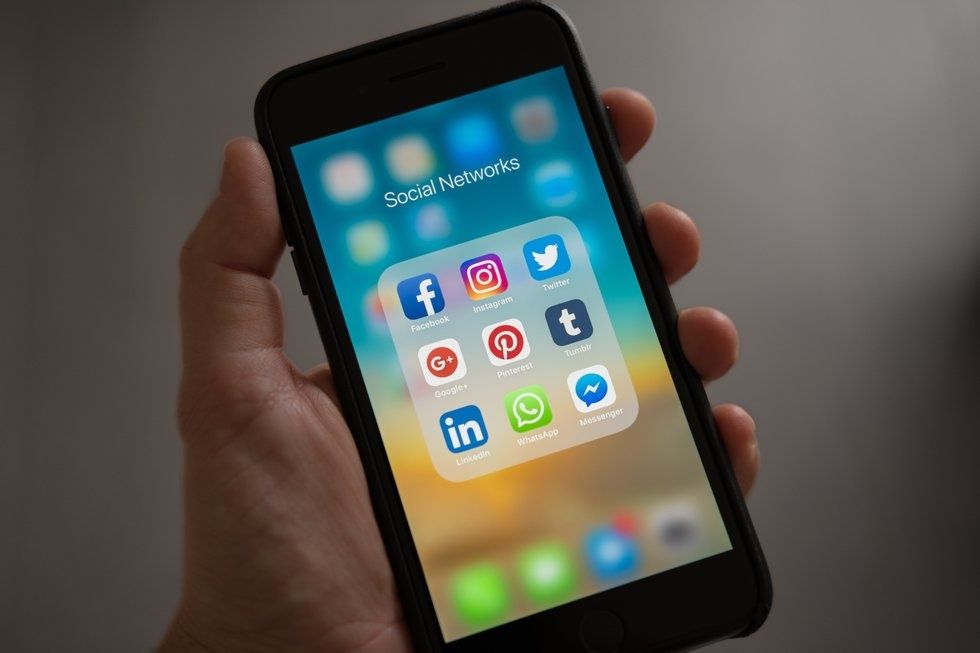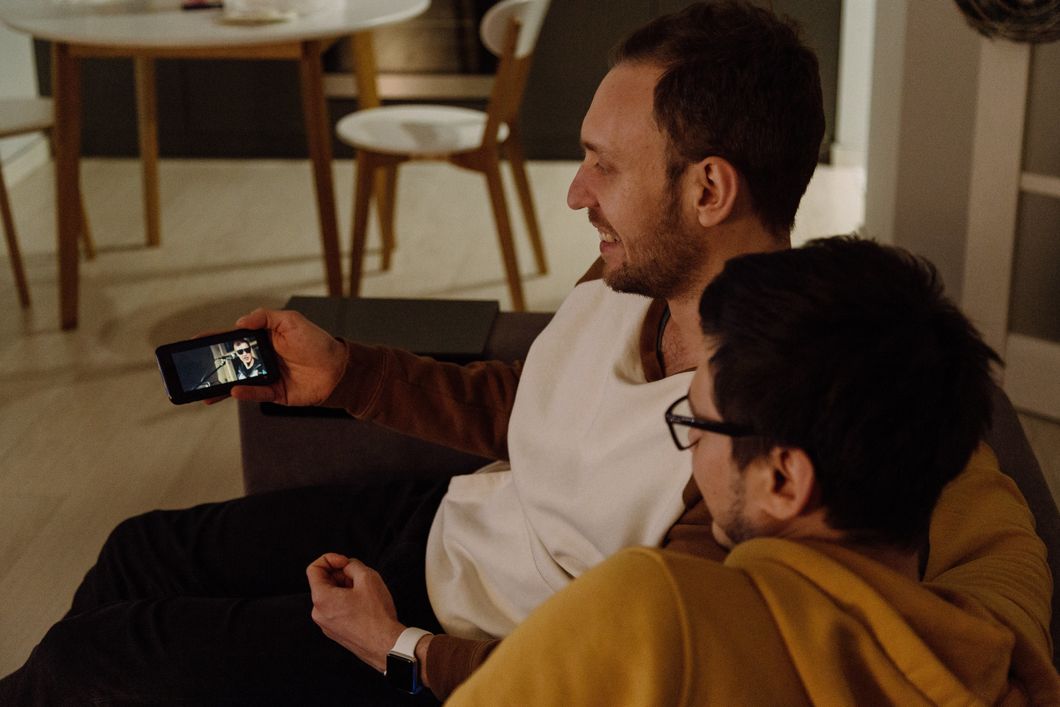Staying Informed Is Easier Than Ever With These 10 Steps To Media-Savviness
Journalism and social media are growing at an incredible rate making it easier than ever to stay informed.
Politics is a topic that everyone seems to be talking about right now, despite your beliefs, everyone can agree that our country has become more polarized than ever.
A lot of voters, journalists, politicians, and analysts have asked why did we let it get this way?
With the revolutionary creation of the internet, the print journalism business took a big hit, but we have so many new ways to be informed.
So why aren't we taking advantage of this abundance of information?
Many people claim there isn't enough time in the day to watch the news, read a newspaper, etc. However, the presence of social media seems to be something we fall back to during our "free time."
Here are 10 easy ways to be informed without having to watch the news 24/7, read the newspaper every day, or follow 20 different stations on Twitter.
Watch A Town Hall or Debate
Watching a debate or a town hall is a great way to learn about a presidential candidate. You are able to see if they are well-spoken, likable, how they interact with the public, and learn their stances on important issues.
The example above is CNN's Town Hall with Pete Buttigieg moderated by Jake Tapper. Throughout the town hall, questions were asked by Jake Tapper and taken from the audience.
The public is able to attend these events or watch them live on TV.
Follow Presidential Candidates On Social Media
An easy way to become more informed on who you should vote for is Twitter. Yes, that platform you spend hours scrolling through each night.
Many presidential candidates, journalists, and politicians have social media platforms.
Following the presidential candidates on Twitter is an easy way to see what they are doing, when they are speaking in public or on the news, and to learn about their policies!
Subscribe To A Newspaper / Email List
Subscribe to a Newspaper!
Whether you like holding it in your hands, receiving it by email, or reading it online, it does not cost much to support the industry.
Papers like The New York Times and Financial Times partner with schools to give free access to their content. Therefore, it is worth checking if your school is partnered with any news organizations!
Many networks like CNN send you an email a day of 5 trending subject summaries a day! All you have to do is sign up via email.
Go To A Rally
Candidates travel from city to city to speak to the public and inform you about their policies. Look at your local events whether it be in your city or at your school!
It's a great way to learn about who you want to vote for, learn a different perspective, and be informed. These events are usual motivating and in good spirit. Take a couple of friends and make a day out of it!
Late-Night Talk Show Hosts
Late-Night Talk Show hosts like Conan O'Brien, Stephen Colbert, Jimmy Fallon, and Trevor Noah all incorporate politics in their shows and add a great amount of humor.
All though these are not the most reliable sources as much of it is parody and satire, it is a great way to make light of the news and listen to your favorite talk show host. It is also a great way to spark your interest in a topic!
Stephen Colbert has even brought guest like Alexandria Ocasio-Cortez, Meghan McCain, and Jake Tapper on his show.
Watch An Hour Of News
Whether it's a week or a day, it's not that hard to turn the news on for an hour. Find an anchor you like and you'll be more inclined to watch!
Most news networks bring in analysts, reporters, other journalists from different networks, and politicians to support their show and bring in different viewpoints.
This includes debates, which the audience can learn a lot from, especially when listening to opposing sides.
Download A News App
Many networks such as CNN, ABC, NBC, Fox News, The Washington Post, and The New York Times have their own apps in the App Store.
These apps allow you easy access to stories, notifications to breaking news, and live streaming on your phone! Getting the notification on your phone is the easiest way to learn about what's going on that day.
Some of the apps allow you to create favorites such as stories in California or stories on healthcare.
Radio and Podcast
Radio and podcasts are two of the highest growing tracks of journalism. Many radio stations and podcasts have even begun filming their interviews, which they upload to their websites, social media platforms, and frequently YouTube.
"The Breakfast Club" is an example of a radio station that has had politicians and journalists as guests on their show. They also film their shows and post them on YouTube, which is a fun and interactive way to listen to their show.
Follow Journalists or News Organizations On Social Media
Twitter, Facebook, and Instagram are all platforms that journalists, politicians, and news networks are on. Follow a couple of each to get different perspectives and immediate news coverage.
Following journalists, politicians, or news networks on Twitter is a great way to see previews of articles before deciding to click on the link!
It is also a great source to see graphics, fact-checking, videos of news coverage you missed live, and notifications to important coverage.
Support Local News
A great way to learn about where you live and get involved is to follow, subscribe to, watch, or keep up with some sort of local news.
Learning about your area, the people in it, and everyday news is a great way to be informed. It's also a great way to learn about events or new stores and restaurants in your area!
Many local platforms on the radio, broadcast, print, digital, and more need all the help they can right now. Local news is important, therefore, we should protect its transparency and independence however we can.
If you are a college student, another great way is to read your collegiate paper. Many high school's have these too. Better yet get involved with one!

























I Limited My Social Media Usage And I Challenge You To, Too
My worth is not defined by the amount of likes I get.
Every morning at 8 a.m., my alarm goes off, I roll over, and the first thing I do is check my Snapchat only to open a bunch of pictures of the top of someone's head, or the wall, or — my favorite — a black screen. This is something we're all guilty of, myself included. We all know that social media is becoming an addiction amongst us, so why do we still use them in an unhealthy way? Why are our friendships defined by who has the longest streak? Why are our perceptions of others based on the most perfectly posed presentations of people? Why is our self-worth dependent on the number of double taps or shares or comments?
My world used to revolve around social media.
Every time I posted a picture on Instagram, I would constantly refresh to see how many likes I had accumulated. The worst part about that is I would get upset if I didn't get any likes in the seconds between each refresh.
If I got bored or had some downtime between classes, I would spend hours just scrolling through the same posts, hoping to find something different.
So much of my life was wrapped up in the superficiality of social media posts to the point where I no longer knew who I was. I would see pictures of my friends who ended up at the same college and feel left out, I would see girls from high school joining sororities, I would see people looking so stunning and having so much fun, and I let that be the thing that influenced how I felt.
Social media consumed me. It made me forget all the wonderful things I have in my life. It made me value a photo opportunity more than just enjoying the moment for what it is. Let me tell you that a moment is no less valuable just because it isn't visually appealing.
I've recently started using the Screen Time feature on my iPhone. I set a two hour per day limit on my social media usage, and when that time is up, I can no longer open the apps. Since then, I've been spending more time face-to-face with the people I care about. I've reconnected with old hobbies. I feel less stressed. I stopped comparing myself to others. I learned to be happy with myself.
I limit my social media usage because all the time I've spent aimlessly scrolling through Instagram is time I could've spent going for a walk and enjoying the warmth of Spring.
I limit my social media usage because I value face-to-face interaction. I value hugs and laughter and all the other things you can't get from a screen.
I limit my social media usage because it hurts my feelings when other people are on their phones when I'm trying to talk to them so how can it be right that I do that to someone else?
I think about how dependent on social media we have become, and it makes me so grateful that the sun is too bright to see our phone screens outside and that the mountains raise too high to have good cell service. I'm grateful that my friends make me laugh so hard that I don't even think to check my phone.
So, I challenge you to separate yourself from your social media. Even if it's just for a day. See how your life changes.